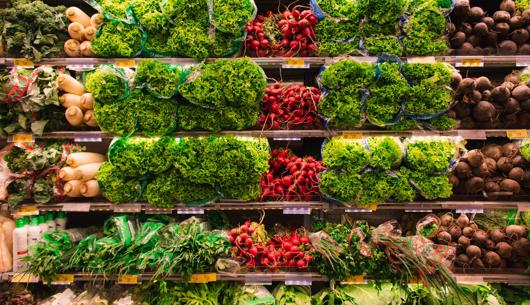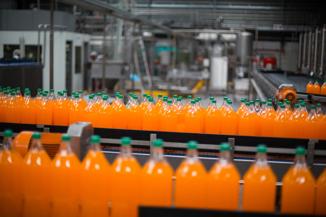Welcome to the Autumn edition of our quarterly regulatory update, produced by our expert food and drink lawyers.
As ever, the sector, and the rules and regulations which govern it, continue to evolve and change at an astounding rate. This update focuses on the most impactful regulatory developments across the food and drink sector over recent months and looks forward to changes on the horizon.
If you need to contact one of our experts specifically about any of the subjects mentioned in our update or generally about other matters, our contact details are below. We also welcome and value feedback on the content of the update so we can ensure these updates are useful to you and your business.
Best wishes
The food and drink sector team
Sign up to our food and drink mailing list
All food and drink regulatory updates
Contents
- Nutrition and health claims – proposed changes to enforcement regime
- Consultation on the labelling of no and low alcohol alternatives
- FSA revises CBD daily limit advice
- Delays to restrictions on volume price promotions including free drink refills
- Precautionary allergen labelling – updated technical guidance published
Nutrition and health claims – proposed changes to enforcement regime
The Government is consulting on reforming the enforcement procedure for nutrition and health claims regulation in England by introducing an improvement notices regime. By introducing this regime, it would bring this legislation into line with enforcement provisions of other food regulations.
The current nutrition and health claims enforcement regime is only enforced by means of a criminal prosecution and it is common knowledge that enforcement authorities can be reluctant to bring a case to court due to it being costly and time consuming.
We also see complaints related to using unauthorised nutrition and health claims submitted to the Advertising Standards Agency (ASA) and whilst an adverse ruling from the ASA can be damaging to reputation, the ASA does not have power to prevent the claims being made. The ASA can pass information to the prosecuting authorities however, the reluctance of prosecuting authorities to bring a case to court means many businesses continue to use their unauthorised claims without facing meaningful sanctions, leading to businesses who do comply, facing unfair competition from competitors using unlawful claims.
The Government states in its consultation paper that an improvement notice regime enables a consistent and low-resource enforcement approach to labelling offences and an improvement notice is usually a sufficient incentive for businesses to make the appropriate changes. This is a fair assumption given our experience.
Whilst these proposed changes are subject to consultation, it is highly likely that these changes will go ahead. We anticipate the necessary amending legislation being laid in Parliament in spring 2024 with businesses having 3 months when the Statutory Instrument is made to prepare for the new enforcement regime.
We recommend acting now to review nutrition and health claims made by your business and revising or removing any claims which do not comply with the law before this new enforcement regime comes into force.
Consultation on the labelling of no and low alcohol alternatives
The Government is conducting an open consultation on updating the labelling guidance for ‘no and low-alcohol’ alternatives – that is those alcohol substitute drinks which have an alcoholic strength of 1.2% ABV or less. The government’s overarching aim is to increase the substitution of alcoholic drinks with no and low-alcohol alternatives amongst people who drink above low-risk levels.
To that end, the consultation seeks both views and evidence on the options for updating the guidance on labelling of alcohol free and low-alcohol products. This includes seeking evidence and views on:
- changing the threshold at which a product should be described as ‘alcohol free’ from 0.05% ABV to 0.5% ABV;
- whether “non-alcoholic” should be recommended for use with a name commonly associated with an alcoholic drink;
- the display of alcoholic content on labels of drinks up to 1.2% ABV; and
- introducing an age restriction warning on no and low alcohol drinks that these drinks are not suitable for under 18s.
The consultation closes on Thursday 23 November 2023. Depending on the responses received, further regulations are likely to be imposed on the labelling of ‘no and low-alcohol’ products.
Producers of no and low alcoholic beverages will need to consider the responses produced after this date and be cognisant of potential labelling changes that may come into effect as a result of this consultation.
FSA revises CBD daily limit advice
The Food Standards Agency has reduced the daily limit for CBD in new advice from 70mg to 10mg per day. The FSA have said that the advice is precautionary and there was “no acute safety risk”, however there are concerns that long-term use above 10mg may cause liver and other health problems.
CBD is derived from cannabis but without psychoactive properties and is sold in a range of products such as oils, confectionary, baked goods and drinks.
The CEO of the FSA, Emily Miles, said:
“This change to our advice will have implications for products currently on the market that contain more than 10mg of CBD per serving. We will be working closely with industry to minimise the risk, to ensure consumers are not exposed to potentially harmful levels of CBD.”
CBD was classed by the FSA as a “novel” food, in January 2019 and all CBD food products were required to apply for authorisation before they could be sold legally in Great Britain. Novel food are foods and/or ingredients that were not consumed to a significant degree by humans in the UK or EU before 15 May 1997.
In February 2020, the FSA confirmed that CBD food businesses needed to submit quality applications for authorisation by the end of March 2021 for products which were already on sale, or to leave the market. All products awaiting authorisation can be viewed on the FSA’s public list of CBD products.
If a novel food has been authorised and included on the list based on proprietary scientific data or information that has been granted data protection, it is authorised for placing on the market only by the applicant for a period of 5 years. Following the FSA’s reduced daily dosage advice, Holland & Barrett removed 31 CBD products where “customers cannot choose to only use 10mg a day”. They say it is a temporary measure made “in an abundance of caution”.
With advice being kept vague, the FSA stated:
“Some products available on the market will have a higher dose of CBD per serving than 10mg a day, therefore consumers should check labels and consider their daily intake in light of this updated advice.”
The restriction of products by some retailers which are legally placed on the market should be of concern to all food producers, and we will be watching any further developments closely.
Delays to restrictions on volume price promotions including free drink refills
The Food (Promotion and Placement) (England) (Amendment) Regulations 2023 seek to amend the Food (Promotion and Placement) (England) Regulations 2021 which provide for restrictions on the marketing in a store or an online marketplace of certain foods and drinks that are less healthy.
The amendment is to enact a 2 year delay to regulations 5 and 6 relating to the ‘volume price promotion restrictions’, including free drink refills which were due to come into force on 1 October 2023. This means multibuy and buy one get one free offers are to be given a reprieve as restrictions on volume price promotions are now due to come into force on 1 October 2025.
For those food products where the promotion is included on the packaging, these new regulations clarify these products benefit from a 12 month transitional period starting from the day the restrictions come into force.
This delay will support businesses and allow them to focus on making food more affordable, in the midst of the cost of living crisis.
Precautionary allergen labelling – updated technical guidance published
Food businesses will be aware of the mandatory requirement to indicate to consumers whether any of the 14 allergens listed in Annex II of the Food Information for Consumers Regulations (the FIC Regulations) are deliberately included in relevant food.
There are also occasions where through the manufacturing/production process, substances or products causing allergies or intolerances may unintentionally become present in a food, through contamination. Providing information about the possible and unintentional presence of allergens, otherwise known as precautionary allergen labelling, is voluntary.
Voluntary information about food provided to consumers must not mislead or be ambiguous, but this information can often be contradictory leading to fatal consequences.
In November 2022 the Coroner published her report following the inquest into the death of Celia Marsh, who sadly died after eating a vegan wrap which contained a product labelled “dairy free coconut yoghurt alternative”. The product contained traces of milk protein and Celia, who had a milk allergy, assumed the product did not contain dairy because of the information provided on the label. The coroner made a series of recommendations in her report which led to updated technical guidance being published by the Food Standards Agency (FSA) to better support food businesses in providing compliant and consistent voluntary information to consumers.
The key takeaways from the updated FSA guidance are:
- businesses should only apply a precautionary allergen label if there is an unavoidable risk of allergen cross contamination which cannot be sufficiently controlled by risk mitigation such as segregation and/or cleaning.
- when using a precautionary allergen label, it must specify which of the 14 major allergens it refers to, and not refer to a generic term. For example, ‘peanut’ should be used rather than “nuts” as peanuts are considered a separate and distinct substance to nuts.
- precautionary allergen labelling can be used in combinations with a “vegan” label where a risk of cross contamination with an allergen has been identified.
- precaution allergen labelling such as “may contain...” should not be used alongside “free from” as the two statements are contradictory. Free from is a guarantee that the food is suitable for all within an allergy or intolerance to that allergen.
By following the FSA technical guidance, businesses should avoid misleading consumers and ensure consumers have the information they need to make informed decisions about the food they consume. The severe consequences of using misleading allergen and other voluntary information means that food businesses must have this high on their risk register and processes and procedures should be in place to mitigate risk.
Key contact

Mark Hickson
Head of Business Development
onlineteaminbox@brownejacobson.com
+44 (0)370 270 6000
Our team

Sam Sharp
Partner









































